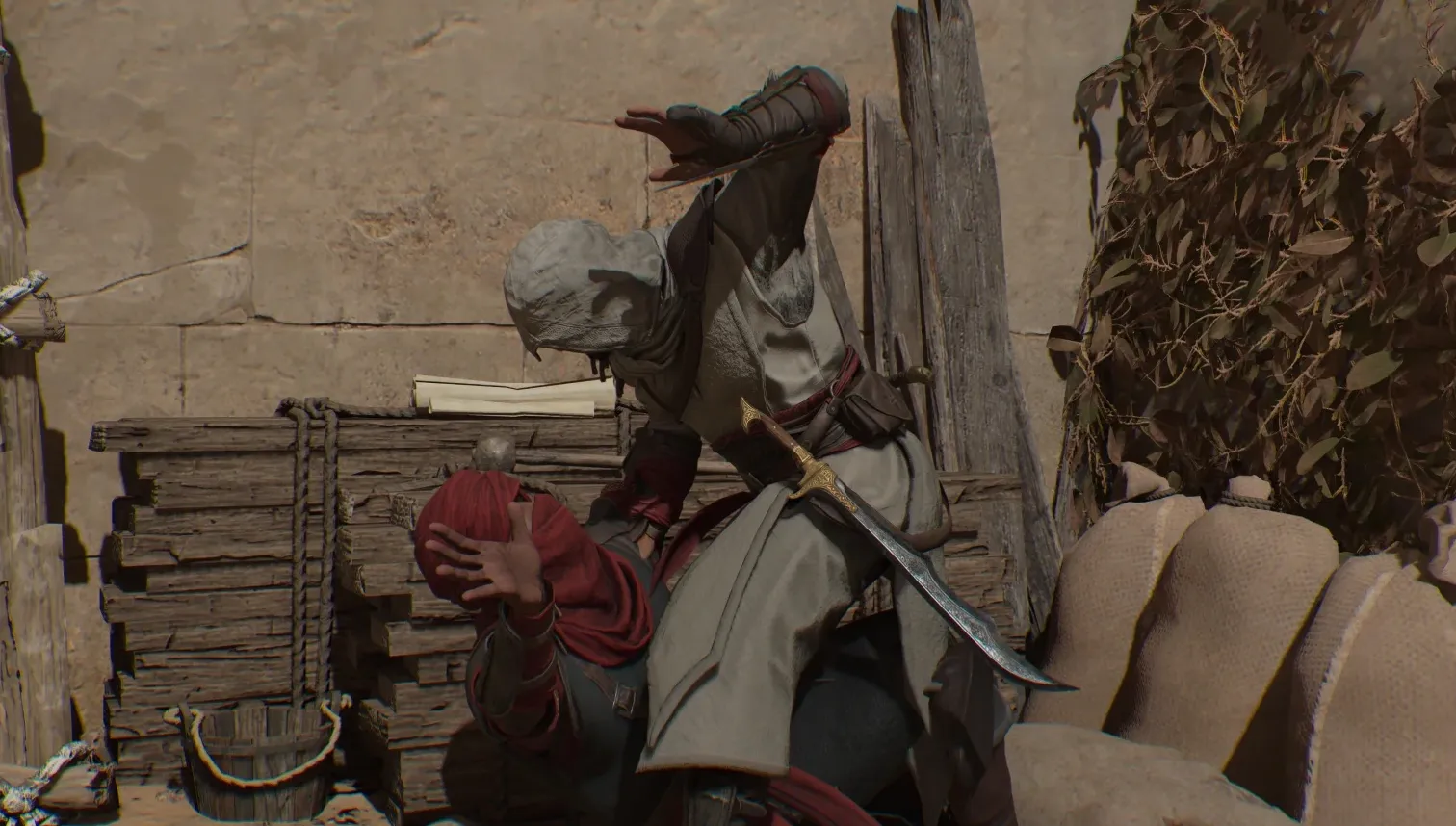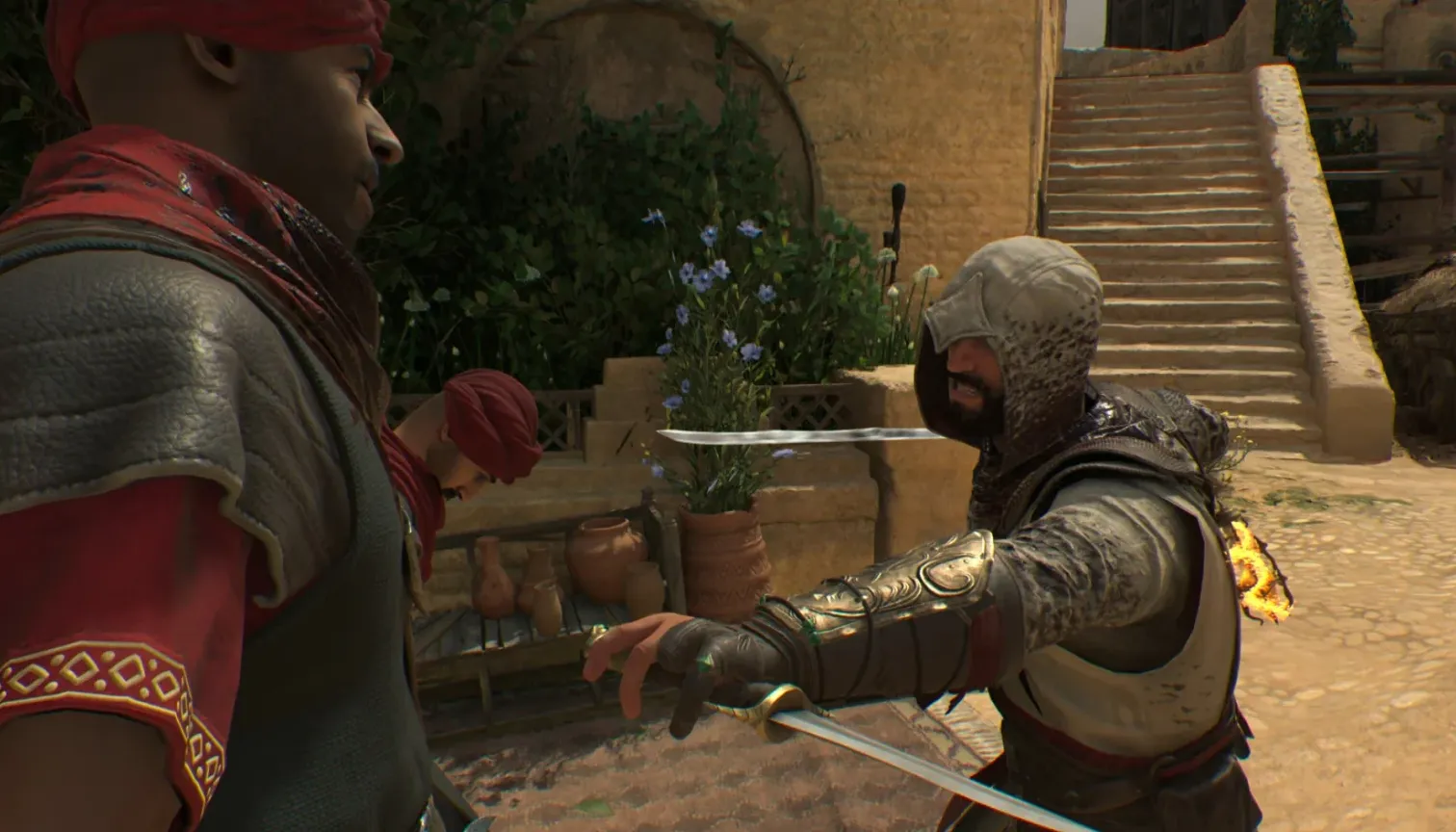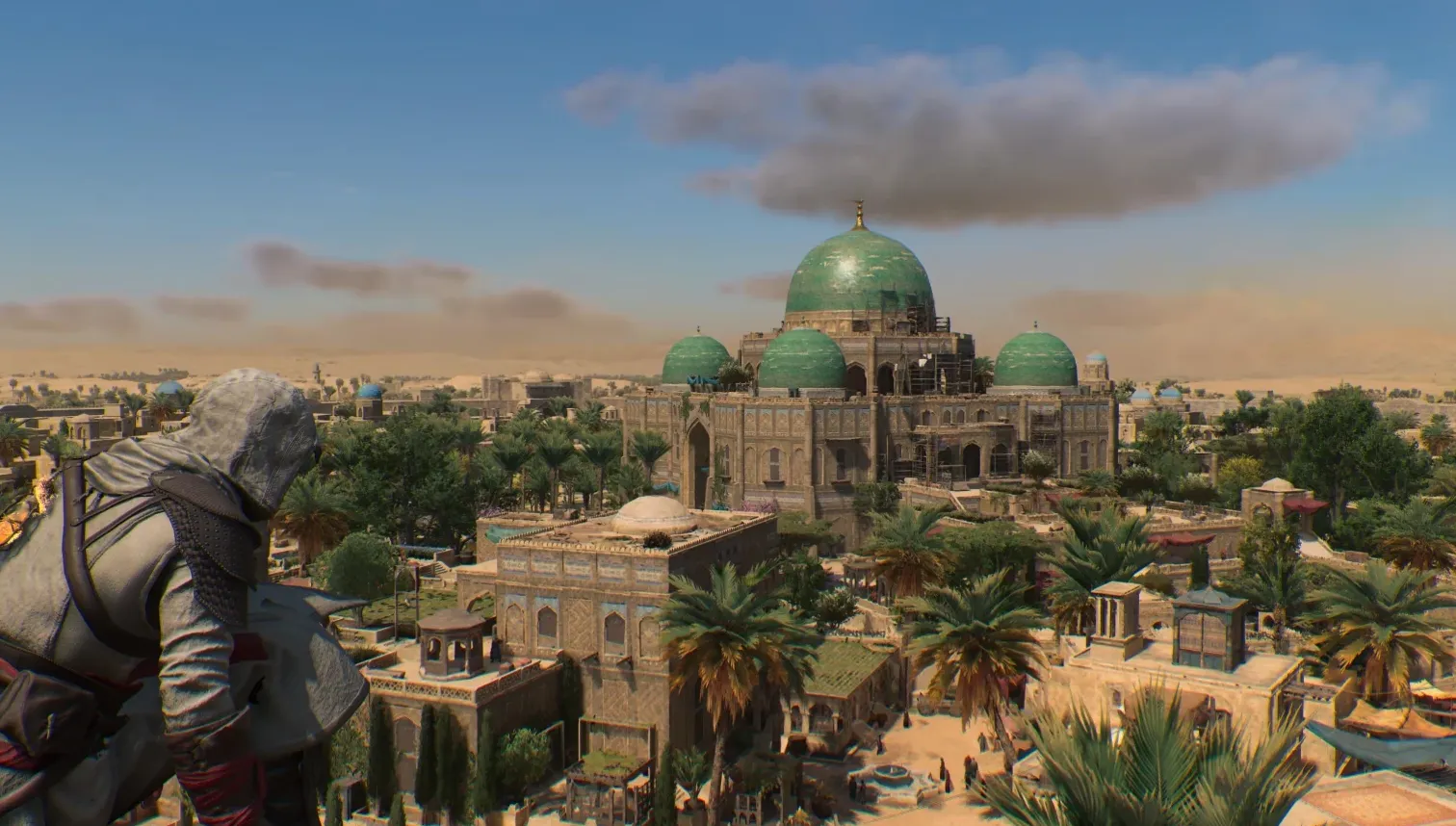Assassin’s Creed Mirage: A Nostalgic Welcome Back to an Old Friend
Please be aware that this article includes minor spoilers for Assassin’s Creed Mirage.
The deeper I got into Assassin’s Creed Mirage, the more warm nostalgia overwhelmed me. It felt like a nice hug from an old friend. A comforting, bloody embrace.
The latest release in Ubisoft’s long-running open-world adventure series takes the series back to its roots. Mirage mostly abandons the RPG approach that Ubisoft took in the last three main games: Assassin’s Creed Origins, Odyssey, and Valhalla. I’d only played the latter and it just didn’t click for me, largely due to Ubisoft’s tendency to leave their games full and partly because it strayed so far from previous titles.
Some of Valhalla’s DNA carries over to Mirage, which shouldn’t come as a surprise since the latest game was originally conceived as an expansion to the last 100+ hour epic. There are swords, daggers, and outfits to hunt that give protagonist Basim small upgrades, such as reducing his reputation, which he gains by performing illegal actions or passively restoring health. These items are upgradeable, as are your tools. One neat, if unrealistic perk is causing an enemy to disintegrate after Basim eliminates them with a throwing knife. So you can customize your build to suit your play style to a certain extent.

There are also skill trees, but instead of unlocking the damage boost Basim does, the abilities are genuinely impressive. Identifying opponents and important items from afar, reducing fall damage, and chain kill ability are all very useful tools for Basim to have under his belt.
Ubisoft has pulled back quite a bit on the RPG elements of the previous few games. You don’t use bows, shields or two-handed weapons like in Valhalla, for example. Regardless, there’s plenty of customization for people who want to optimize (or min/max) Basim for their preferred playstyle.
“Just enough” is a thought I kept coming back to during the 17 hours it took me to beat the main story. Mirage is just the right length. There are just enough collectibles and side quests to make the world feel rich, but not overwhelming. There’s just enough story, and it’s fairly random, though it also gets more intriguing in the last couple of hours. Enemies have enough variety.
There are only a few enemy types, and I like that Mirage doesn’t go down the well-worn and nonsensical path of arbitrarily making them stronger based on their geography – an aspect of Dead Island 2 that I didn’t like. While Basim largely has to get by with his sword and dagger (and of course the Hidden Blade), the enemies have a variety of weapons. A trio of rogues pose a different threat, wielding spears instead of swords. You have to carefully navigate that combination of weapons, especially when surrounded by enemies. That and the level design of the encounters help make Mirage feel more like a refreshing throwback.

In the main missions, I only encountered one traditional boss fight at the end of the story. Practically every other enemy was vulnerable to a one-button kill. I definitely made the most of it by masking assassination targets or distracting them with noise-making devices. The game actually prevents open combat. You don’t get experience points by killing tons of enemies. Staying silent is usually the way to go – unless you’re a finisher, as there’s a reward/achievement that requires you to stay in open combat for 10 minutes. Luckily, the game makes it pretty easy to get around.
Contrary to my first impression, the guards in Baghdad are not that smart. They are often momentarily confused when confronted with the body of a colleague they were talking to seconds earlier before leaving. They quickly give up hunting Basim. They see the cohort being backed into a corner and think nothing of it. It breaks the immersion a bit, but makes it easier to mess with these idiots.
I enjoy harassing opponents, even if it might not be in accordance with the Assassin’s Code of Conduct. One larger grunt was trapped in the room alone to guard the chest. I went in, used a smoke bomb to distract him, opened the chest and left, blocking the path behind me. I then walked over to the gate that kept the guard locked on the other side and spent a few minutes whistling at him for no other reason than to annoy him and amuse myself.
The real star of the show is the version of ninth-century Baghdad built by Ubisoft. It feels rich and alive as bystanders just go about their day as a hooded figure darts past them to climb up the side of a building. Unfortunately, this detail was not reflected in the character models. The main characters and NPCs looked much less polished than their surroundings.

Some Arab critics and reviewers appreciated how Ubisoft represented Baghdad and Muslim culture in the game, which is a positive sign. In that sense, Mirage seems like an excellent candidate for the historical tutorial modes that Ubisoft has added to recent Assassin’s Creed games.
I can’t personally speak to the authenticity of the environment that Ubisoft has created. The same applies to the Arabic used in the game, but the developers at least try to avoid anachronism. I played for about an hour in Arabic with English subtitles and found it a compelling way to experience the game, although I missed too much the velvet-voiced Shohreh Aghdashloo’s portrayal of Basim’s mentor Roshan.
Aghdashloo’s performance is one of the many highlights of a solid game. Developer Ubisoft Bordeaux has achieved its goal by bringing back the format of the early Assassin’s Creed games while adding some modern bells and whistles (like a game option to avoid the depraved pickpocket minigame) and avoiding some of the old features.
No part of the game I’ve encountered is set in the present day. It’s a wise move, as parts of previous games took me away from the main experience and into boring parts that tended to serve the larger story. I didn’t hear the word “animus” this time. Mirage ties back into the larger Assassin’s Creed story—Basim appears in Valhalla, after all—but neither Desmond Miles nor Layla Hassan get sidetracked. This meant I could spend more time wandering the streets and rooftops of this well-designed city, surveying enemy camps from above and figuring out the best way to approach an assassination mission.
Mirage probably won’t be for everyone, including those who appreciated the format of the last three big Assassin’s Creed games, but it struck a chord with me. Even though I’ve finished the main story and have plenty of other games to play (I’m looking at you, Cocoon, and Spider-Man 2), I’ll probably spend a little longer cozying up to Kangastus.
Assassin’s Creed Mirage is out now for PC, PlayStation 4, PlayStation 5, Xbox One, and Xbox Series X/S. It will come to iPhone 15 Pro devices next year.




